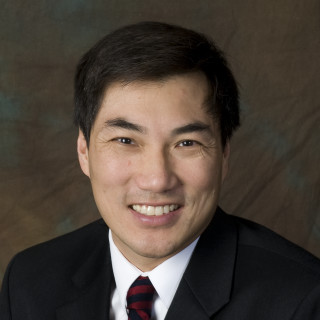Why every ophthalmologist (and not just neuro-ophthalmologists) should attend the American Academy of Ophthalmology (AAO) Annual Meeting Neuro-ophthalmology Subspecialty Day in San Francisco, 2023.
In my own lectures on neuro-ophthalmology for comprehensive ophthalmologists I typically start with an announcement that “A general eye doctor does not have to do neuro-op.” I follow with the reassurance that “A general eye doctor does not have to like neuro-op”. I also tell them that “They don’t have to like me, but they have to R-E-S-P-E-C-T Neuro-ophthalmology (find out what that means to me).”
This year, the 2023 Neuro-op subspecialty day is entitled, “Should I Worry? Concerning Signs, Symptoms, and Findings in Neuro-Ophthalmology”
Program Directors, Peter A. Quiros, MD and Madhura A. Tamhankar, MD and their AAO planning group have created an exciting program this year focusing on “when to worry and when to watch” and I believe that every comprehensive ophthalmologist should consider attending.
In Section I of the program the emphasis is on ophthalmic complicaitons of systemic medications and opens with the question “What Meds Is My Patient On? Adverse Reactions of Systemic Medications”. For me, this means the Lee “HATE” list of medications including Hydroxychloroquine (Plaquenil), Amiodarone, Tetracyclines, and Ethambutol (HATE) as well as the small “e” (erectile dysfunction agents like sildenafil). Hydroxychloroquine can cause a ring scotoma from a bull’s eye maculopathy. Amiodarone can cause a presentation that may mimic anterior ischemic optic neuropathy (AION). Tetracyclines (especially minocycline and particularly in combination with vitamin A analogs for acne) can cause pseudotumor cerebri and papilledema. In addition, erectile dysfunction agents can lead to a type of AION.
In Section II, the topic is on the perennial favorite, What to do with the “Swollen Optic Nerve” (including optic neuritis, papilledema, and ischemic optic neuropathy). In Section III, the program tackles the topic of “Neuro-Ophthalmic Mimickers and Visual Disturbances” and in Section IV, the bane of every general eye doctor’s existence, “Double Vision—What to Do?”.
Attendees for the 2023 AAO Annual meeting can view the full schedule in the AAO Mobile Meeting Guide. The stated mission of the 2023 AAO-NANOS Neuro-Ophthalmology Subspecialty Day is “to provide new, updated, and clinically relevant neuro-ophthalmic information that will assist the practicing ophthalmologist to identify critical findings and to differentiate them from potential distractors to make an accurate diagnosis and determine management strategies based on best practices” and the intended audience for this program is comprehensive ophthalmologists. I encourage all attendees for the AAO annual meeting this year regardless of level (beginner, intermediate, or advanced) to come to the Neuro-op subday. The concepts that will be discussed will no doubt offer sufficient breadth and depth to the target audience to ensure that there is something for everyone.
By the conclusion of the AAO SubDay symposium, the attendee will hopefully recognize the key and differentiating neuro-ophthalmic signs or symptoms for potentially vision or life threatening disorders in neuro-op; interpret the distinguishing features correctly; arrive at an accurate, early, and precise diagnosis; and determine an appropriate initial and timely management based on best practices.
This year’s program objectives include:
- Recognize neuro-ophthalmic side effects of systemic medications.
- Differentiate the etiology of visual loss in those presenting with optic disc edema due to different causes.
- Characterize symptoms such as photophobia, dysphotopsia, and hemeralopia as it can mimic neuro-ophthalmic disease.
- Formulate hypotheses for patients who present with failure of visual improvement after cataract surgery that may harbor a potential neuro-ophthalmic condition.
- Interpret crucial pre-operative examination findings that can help diagnose such patients to avoid poor outcomes after cataract surgery.
This year’s AAO Neuro-op Subday promises to be an exciting educational opportunity. Come join us in San Francisco and find out what RESPECT really means to me in neuro-ophthalmology.
Dr. Lee has received consulting fees or honorarium as a Horizon speaker. He has received fees for participation activities from Astrazeneca and Bristol Mayers Squibb. He is also a consultant for the National Football League and NASA.
Image by GoodStudio / Shutterstock







